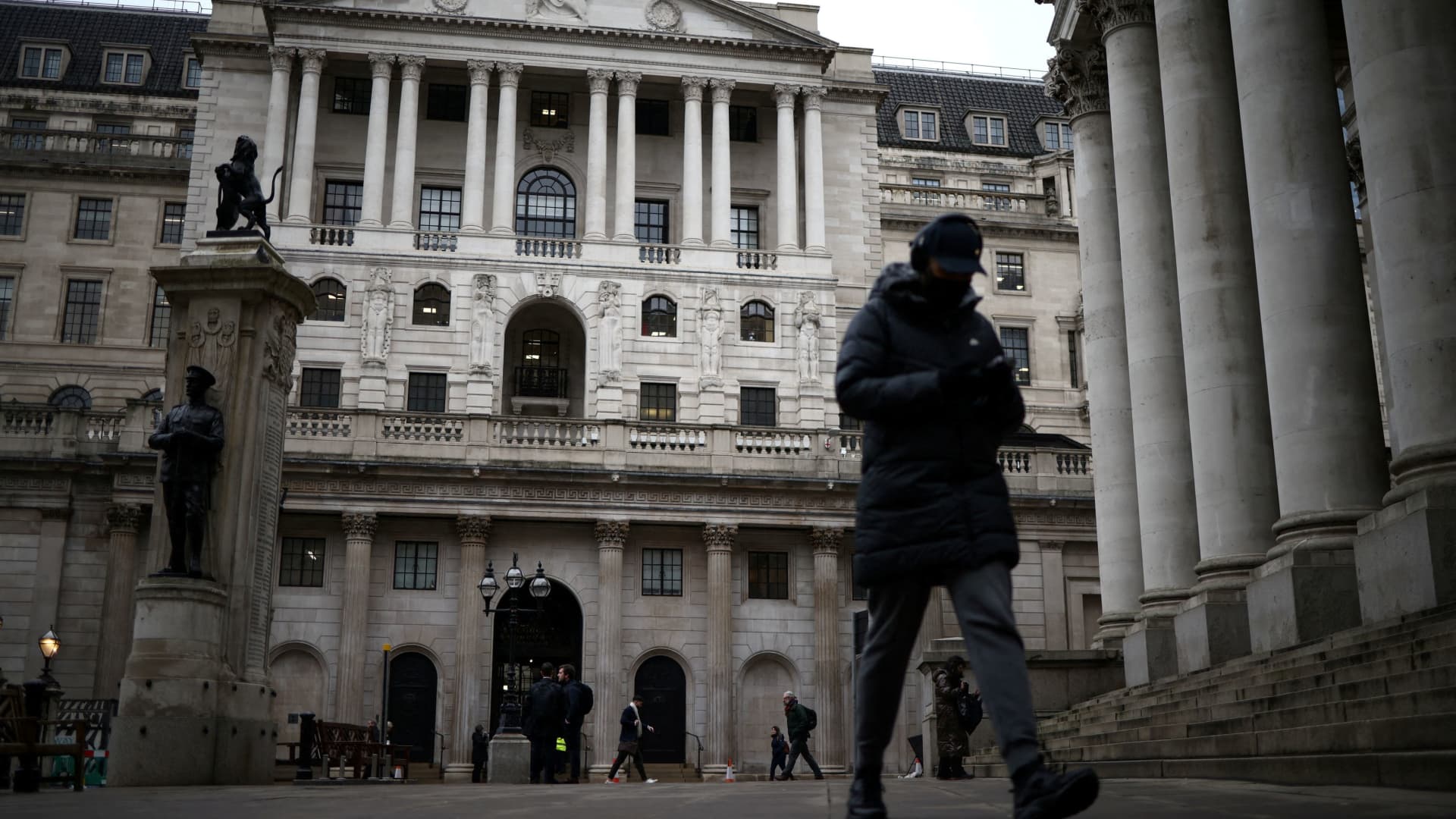Products You May Like
LONDON — The U.K. has thus far avoided a widely anticipated recession, and the signs from the business world are that the economy may be holding up better than feared, according to veteran Schroders fund manager Andy Brough.
Figures published earlier this month showed that the U.K. GDP contracted by 0.5% in December, as the economy flatlined over the final quarter of 2022 to narrowly avoid a technical recession.
The Bank of England projects that the British economy has entered a shallow recession in the first quarter of 2023 that will last for five quarters, however, as energy prices remain high, and rising market interest rates restrict spending.
But Brough, head of the pan-European small and mid-cap team at British asset manager Schroders, said that his interactions with businesses suggested greater resilience than the weak GDP figures and official forecasts imply.
“The consumer’s still out there spending. Every number is a surprise to the market, isn’t it? I walk up and down the streets or cycle into work, [and] there’s still lots of people out there, and people are still buying houses, still buying cars, they’re still shopping,” he told CNBC’s “Squawk Box Europe” on Wednesday.
“There’s seven wonders of the world, and the eighth wonder of the world is how GDP is calculated,” he said, adding that he was “surprised” by the scale of the December contraction.
In their latest earnings reports, British banks mostly increased their loan loss provisions — money set aside to insure against customers defaulting on their debts.
Brough advised the market against reading this as a sign that tightening financial conditions are heightening default risks among U.K. consumers, and said that companies he is speaking to are actually “doing okay.”
“Underneath companies’ profitability x-minus today, we’re seeing pretty good dividend increases, pretty good earnings statements, so, underlying, I think the economy is in a lot better shape. And it’s very easy to alight on something like a Lloyds Bank and the other financial companies and say things are tough, but actually it’s a mechanical calculation, this provision.”
Lloyds Bank on Wednesday announced a £2 billion ($2.42 billion) share buyback and increased its final dividend to 1.6 pence per share. It was the latest in a string of major U.K. businesses to report strong fourth-quarter earnings and boost capital returns to shareholders.
‘Signs of life’ in business investment
Uncertainty over future relations between Westminster and Brussels have hammered business investment since the U.K. voted to leave the European Union in 2016, in turn hampering productivity expansion and adding to the direct costs of Brexit on the U.K. potential growth.
Real business investment in the fourth quarter of 2022 was only fractionally higher than before the Brexit vote, but recent trends look more hopeful, according to Kallum Pickering, senior economist at Berenberg.
“Albeit from a low base following the pandemic-related slump, real business investment increased by c10% during 2022 — with a 4.8% [quarter-on-quarter] rise in Q4 alone,” Pickering said in a research note on Tuesday.
“It remains an open question whether momentum can remain strong in the coming quarters as firms brace against the headwinds of tighter financial conditions and sky-high energy costs, but firms have both the need and the means to further step up investment.”
He added that the outlook “appears favourable,” if political uncertainty continues to ease — with Prime Minister Rishi Sunak’s government moving away from the populism of fallen predecessors Liz Truss and Boris Johnson, while the main opposition Labour Party shifts to the center under “reliable pragmatist” Keir Starmer — and the U.K. avoids a bad recession.
Pickering also highlighted that U.K. businesses are “lacking confidence, not opportunity,” as the weakness in business investment cannot be attributed to concrete factors, such as difficulty financing capital spending or a lack of viable technologies that may help production processes.
“Non-financial corporations are sitting on deposits equivalent to c23% of annual GDP. Non-financial corporations’ debt is low too. At c75% of GDP in late 2022, debt is at late-1990s levels, well below the GFC peak of 103% in 2009 and far below the current Eurozone level of c145%,” he highlighted.
“With its paltry productivity performance in the post-GFC era — output per worker rose by just 5.5% between Q2 2008 and Q3 2022 — the U.K. is desperate for a wholesale uplift in its capital stock.”
In the six years of “noise and chaos” since the Brexit vote, the diminishing risk of a retaliatory trade confrontation with the EU should offer comfort to U.K. businesses and financial markets, and Pickering suggested better times are ahead.
“It is normal for politics to go awry from time to time and for the economy to suffer as a result. Before the UK’s latest wobble, this last happened in the 1970s, but once things started to get back on track by the early 1980s, economic performance improved rapidly,” he said.
“With any luck, the worst of the political uncertainty that has held back business investment since the Brexit vote is coming to an end.”
With business investment accounting for around 10% of the U.K. GDP, a recovery to pre-Brexit-vote growth rates of around 5.5% could add between 5 and 6 percentage points to annual GDP growth over the next few years, Berenberg forecasts.
“Is that feasible? For a while, yes. Facing persistent labour shortages and a host of global supply frictions, U.K. firms badly need to add to domestic capacity in order to meet growing demand,” Pickering said.
“A period of more settled politics in the years ahead can provide a suitable backdrop for them to do so.”
